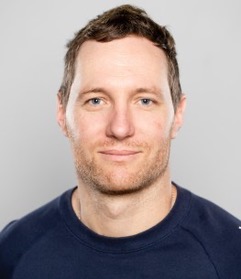Internal talk: Digital optimisation of the feed-microbiome-host nexus

Research talk by Professor Phil Pope (NMBU, Norway)
Phil is a multi-omics expert that collaborates with various researchers at the Center for Evolutionary Hologenomics and the Section for Hologenomics, in projects like 3D’omics, ImprovAFish, etc.
Digital optimization of the feed-microbiome-host nexus
As the human population expands towards 10 billion, pressure is being applied to food production systems to develop nutritious, efficient and sustainable practices, such as optimizing health benefits from food, improving feed conversion and animal welfare and mitigating harmful byproducts such as greenhouse gases (GHG). One promising route to achieve this, is combining the use of functional dietary components with a deeper understanding of the intimate genetic and physiological connection between animals and their microbiomes. However, first we must unlock critical and poorly understood microbiota and their biological pathways that control digestion as well as identify exploitable interactions that exist within the complexity of gut microbiomes. Our research seeks to combine high-resolution genome-guided meta-omics technologies with enzymology, bacteriology, bioinformatics and phenotyping of relevant digestive eco-systems from human and production animals (pigs, fish and ruminants). Herein we highlight how such an integrated approach can visualizes how distinctive dietary fibres stimulate known model microorganisms within a complex endogenous microbiome. We further reveal the metabolic influence of uncharacterized bacterial and eukaryotic populations that are surprisingly conserved across diverse dietary conditions and host species. Importantly, as we develop with the technological advancements, we are actively expanding our analyses further across the “holobiont”, with the long-term objective being: to understand, monitor and ultimately manipulate host-microbiome interactions.
The talk is arranged by Associate Professor Antton Alberdi from Center for Evolutionary Hologenomics.
